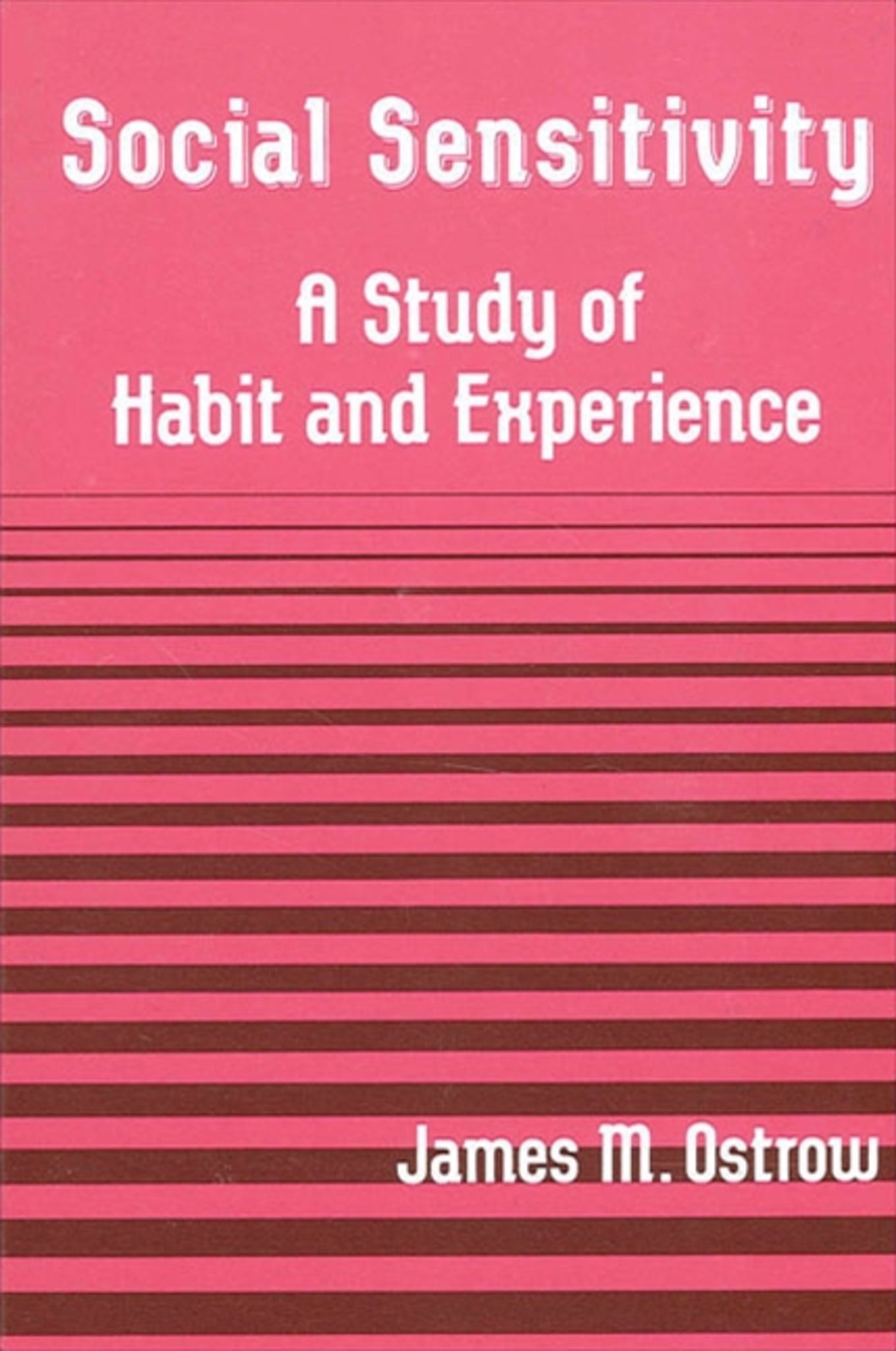We're sorry. An error has occurred
Please cancel or retry.
Social Sensitivity

Some error occured while loading the Quick View. Please close the Quick View and try reloading the page.
Couldn't load pickup availability
- Format:
-
01 September 1990

The author develops a phenomenological theory of the social structure of immediate experience. At the heart of this study is a theory of habitual sensitivity that originates in the writings of Maurice Merleau-Ponty and John Dewey. The author develops this theory as an alternative to Schutz's theory of taken-for-granted knowledge, which has had a pervasive influence on how phenomenology has been understood and applied within sociology. Each chapter expands on Ostrow's claim that the world is inherently social, by virtue of the sensitivity that immerses us within it before it ever becomes an object of reflection.


"The originality of this work springs from Ostrow's solid grasp and critical extension of the ideas of key figures in the phenomenological and sociological traditions. As a result, the proposed theory of habitual sensitivity is creative, novel, and well-grounded. This work makes an important contribution to the growing interest in interpretive approaches to social science inquiry"— David Rehorick, Department of Sociology, University of New Brunswick
"Ostrow provides a strong, appealing theoretical foundation for researching the qualitative immediacy of social life. Attacking both cognitivism and subjectivism, the author helps to make phenomenology attractive to social science researchers."— David M. Levin, Department of Philosophy, Northwestern University
"This is a very sensitive work, well attuned to the nuances of scholarship and capable of handling texts with understanding and balanced interpretation. I find myself very much in sympathy with the conclusions of this study." — Garth Gillan, Department of Philosophy, Southern Illinois University
Preface
Chapter One
Introduction: The Sense and Significance of Social Life
Sense and Signification
Prereflective Habit
Intersubjectivity as a Problem of Habit
Self-Awareness Prior to Self-Objectification
The Subject as a Meeting of Two Pasts
Social Sensitivity
Chapter Two
From Taken-For-Grantedness to Sensitivity: Toward a Social Theory of Immediate Experience
Habit and Taken-for-Granted Knowledge
Embodied Sensitivity
Sociality as a Foundation of Consciousness
Chapter Three
The Intersubjective Contact: The Preobjective Level of Social Life
Intersubjectivity and Taken-for-Granted Knowledge
Intersubjective Sensitivity
Expression as a Medium of Consciousness
Chapter Four
The Experience of Self: Sensitivity and Reflexive Awareness
Self-Awareness and Spontaneous Involvement
Reflexive Sensitivity
The Preobjective Experience of Self
Chapter Five
The Disposition of Social Position: Habitus and Sensitivity
The Theory of Habitus
Institutional Inhabitation: The Case of the Classroom
The Embodiment of Social Position
Habit and Possibility
Chapter Six
Conclusion: Sociology and Human Experience
Notes
References
Index



